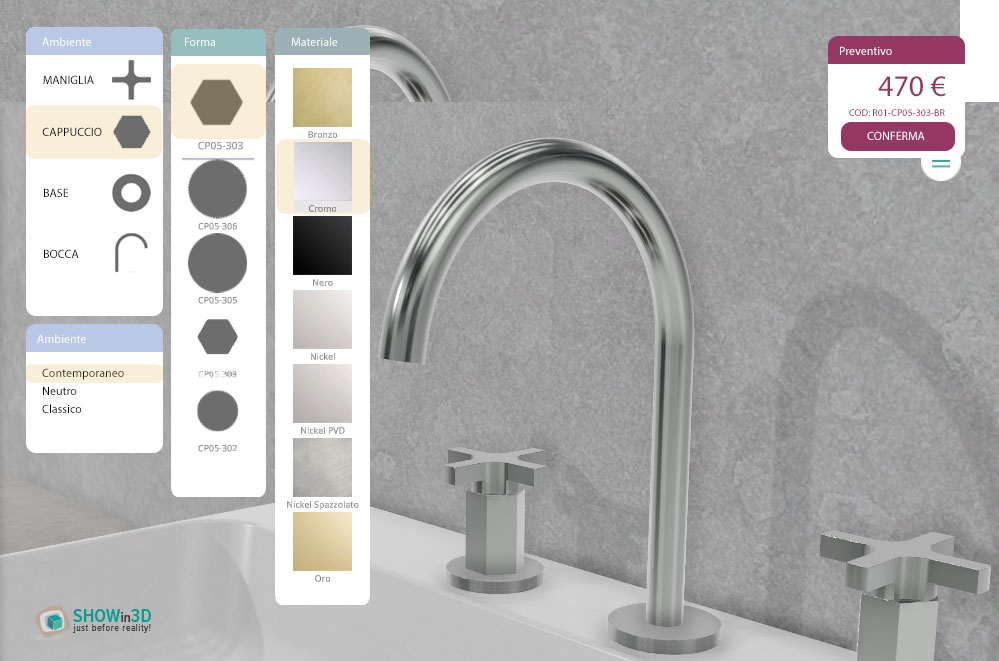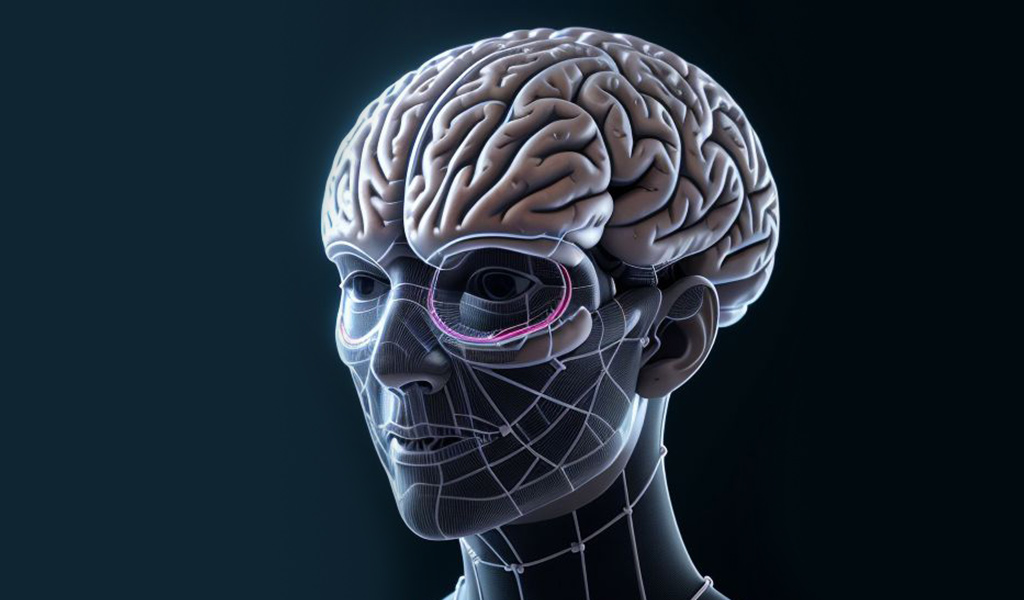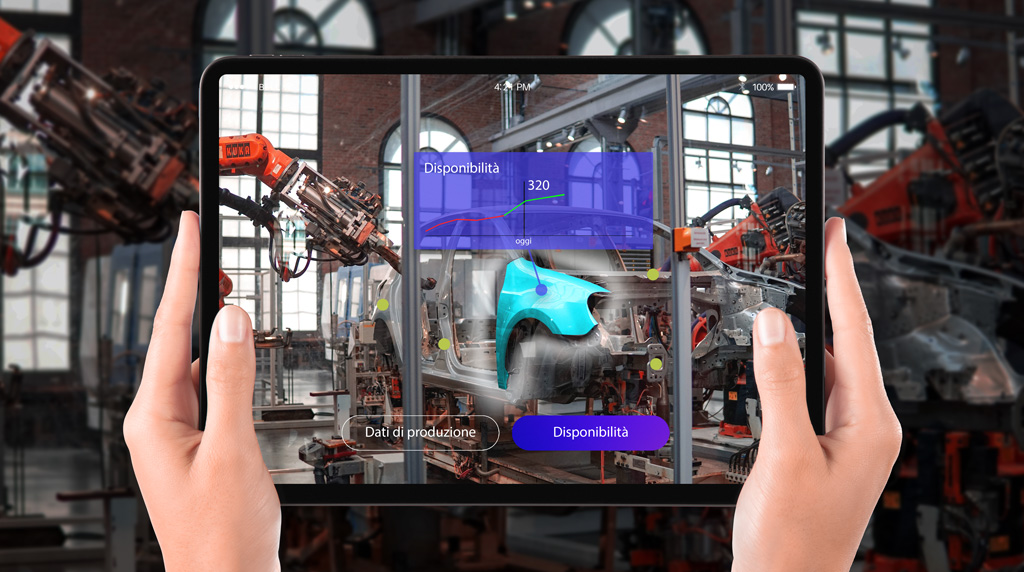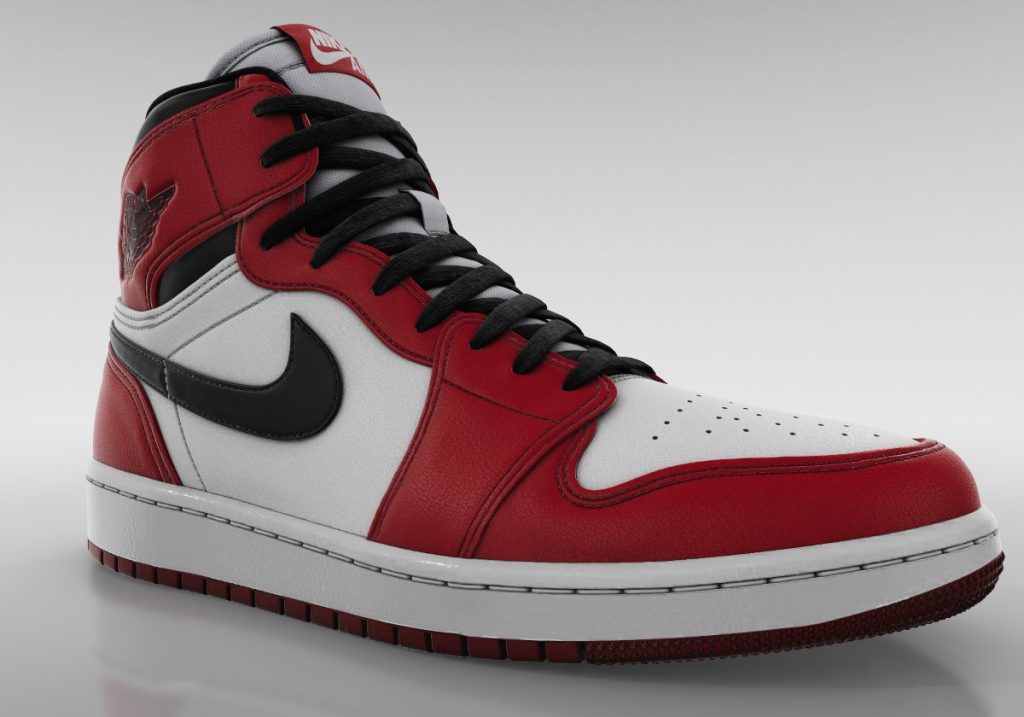Overcoming quoting issues Easy quotes with 3D CPQ configurator CPQ stands for Configure, Price, Quote, the process by which a...
- 3D Technology
- Applications
-
Projects
-
-
Fashion - Zegna X Project
Automotive - UP Design Project
- PEI Mobility Project
-
Machinery - Breton Project
Manufacturing - Sipro Project
-
Furniture - Stella Project
-
- The Company
- Blog
- Contacts
Technology
Augmented Reality (AR) in the Industrial Sector
The role of industrial AR
Augmented Reality (AR) is becoming increasingly important in the industrial sector, revolutionizing work processes and offering numerous advantages. There are multiple uses of AR in the industrial sector and how this technology is transforming safety, efficiency, and skills development. SHOWin3D is a platform ready to offer many opportunities to companies looking to enter the world of virtualization.
The Augmented Reality Market
Despite the metaverse concept not gaining much traction, technology advances and the growth in the AR/VR sector is steady. According to Statista, revenues in the augmented and virtual reality market are expected to reach $52 billion by 2027. Speaking of extended reality (XR see our article), by 2026 we will exceed $100 billion.
However, there is still much skepticism about the use of this technology by Italian companies. Many are still trying to figure out what benefits it can bring to their business. Our experience shows that the initial fear is due to a lack of knowledge about the technology itself. For example, we might say that if we didn’t know what a laser is, it would be hard to imagine how to use it in our companies. Instead, we all know how useful it is and that its applications are endless, from use in mice to precise measurements and even for health. Therefore, SHOWin3D does not just offer a tool but can help discover new 3D applications specific to the company. If you have 3D models of your products, there is surely room for evolution. Let’s see some.
Customer Communication through Augmented Reality
The first approach with augmented reality is definitely for customer engagement. It is becoming increasingly important to communicate emotionally both in person and remotely. Here is a first application that can bear fruit: showcasing a product anywhere in the world without having to transfer it and without being limited to some brochures and photos. Let’s imagine large machines. The cost of transportation for a trade show exhibition, especially abroad, is so demanding that often only a few products are showcased. Augmented reality can open up an infinite catalog of completely realistic proposals.
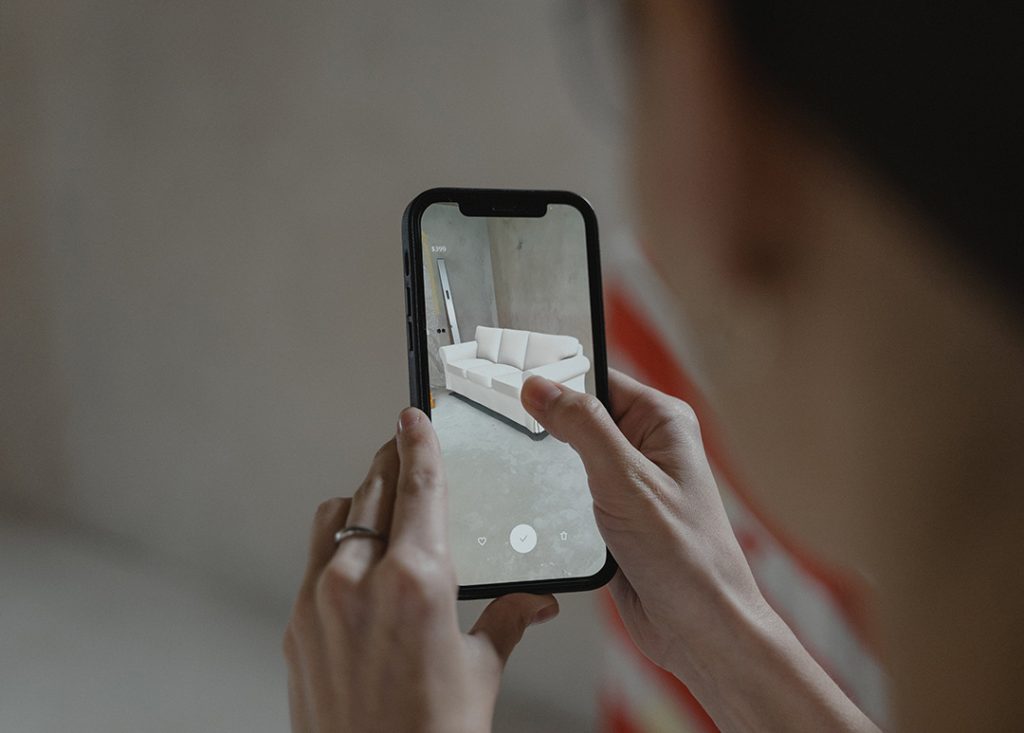
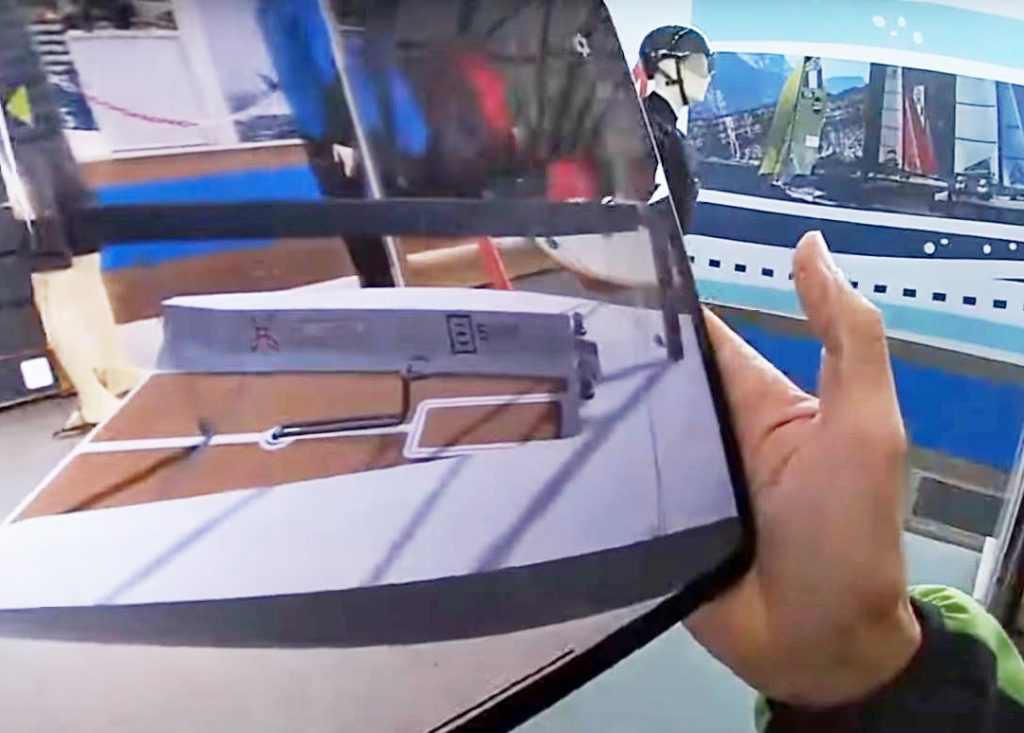
AR for Training and Skills Development
An interesting case study concerns the application of AR in industrial training programs. Thanks to AR, it is possible to create realistic virtual simulations that allow workers to acquire practical skills more effectively. AR also offers the possibility of real-time learning, improving productivity and reducing learning times. All this not only in the presence of a trainer but also remotely thanks to virtualization that creates efficiency in terms of both time and resources.
AR Generates Productivity Benefits
because it simplifies workflows
Certainly, the experiential aspect is what makes learning more intense and training more effective. As Andy Trainor, senior director of Walmart U.S. Academies, stated: “When you look at a module through the headset, it feels like you actually experienced that situation. We have also seen that training through virtual reality increases employee confidence and retention.”
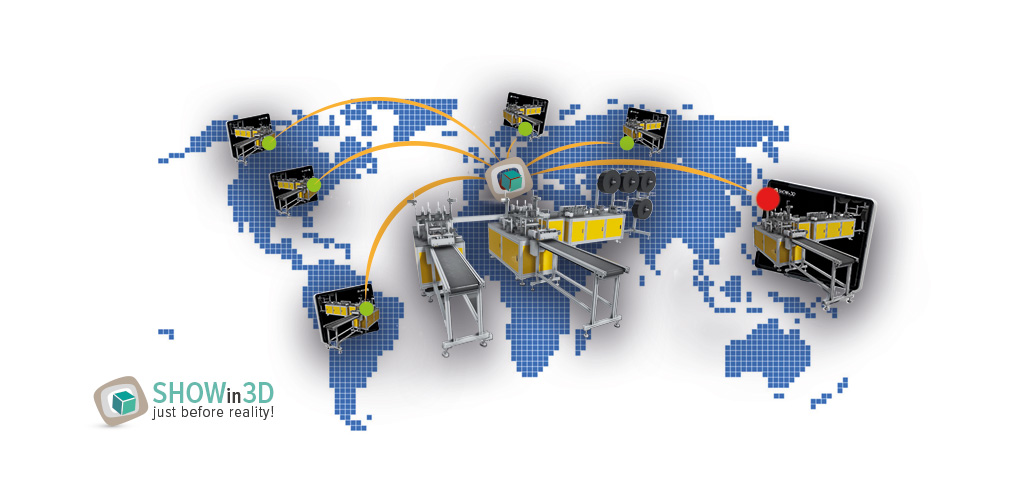
Augmented Reality in Production Processes
A concrete example of AR implementation in production processes can be found in the automotive industry. Thanks to AR, operators can access real-time information on assembly, quality control, and maintenance phases. This technology allows for timely identification and resolution of problems, reducing downtime and improving overall production efficiency.
Safety Improvements with AR
A successful case of AR implementation concerns warehouse management and safety improvement. AR allows workers to view important information directly on wearable devices, reducing the need to consult manuals or use handheld devices during operations. This technology improves workplace safety, reduces accidents, and optimizes ergonomics.
Diversity, Equity, and Inclusion (DEI) Initiatives
Augmented reality can also be a social tool. If your company has a Disability Manager, we can work with them to find suitable solutions.
Future Developments of AR in the Industrial Sector
AR is continually evolving and offering new opportunities in the industrial sector. Future forecasts indicate an even more significant role of AR in industrial operations. For example, AR is expected to be increasingly integrated with artificial intelligence and machine learning, allowing for even greater optimization of activities.
From the 2019 Gartner CIO Agenda survey - which interviewed more than 3,000 CIOs in 89 countries and across all major industries - digital initiatives, along with growth, are top priorities.
A report from the Capgemini Research Institute shows that companies are using augmented and virtual reality to improve their operations.
Future Developments of AR in the Industrial Sector
Future Developments of AR in the Industrial Sector
AR is revolutionizing the industrial sector, offering significant advantages in terms of safety, efficiency, and skills development. This technology is changing how workers acquire practical skills and optimizing production processes. With the continuous evolution of AR, we can expect an even more promising future for this technology in the industrial sector. Remember: Augmented Reality is here to stay and is opening up new possibilities in the industrial world. Be ready to embrace these changes and seize the opportunities that AR offers to improve safety, efficiency, and skills development in your sector. Entrepreneurs who remain skeptical may one day find themselves compelled to implement these technologies. Keeping up with competitors would become complicated and expensive. Starting with SHOWin3D allows for a progressive approach to digitalization and long-term cost-effectiveness. We remind you that new generations already find the use of AR natural. Indeed, more than a third (38%) of parents report that their children also use AR technology, with usage ranging from several times a week to every day. The cultural base is forming, and is your company ready?
Our Augmented Reality Solution
Discover More News
Artificial Intelligence (AI) and 3D Modeling
The Future of 3D? AI – Artificial Intelligence and 3D Modeling Artificial intelligence (AI) is influencing the world of technology...
Augmented Reality (AR) in the Industrial Sector
Technology Augmented Reality (AR) in the Industrial Sector The role of industrial AR Augmented Reality (AR) is becoming increasingly important...
The 3D online configurator to improve the footwear purchasing experience
Improve the shopping experience Footwear with 3D online configurator In recent years, online shopping has gained more and more importance,...

